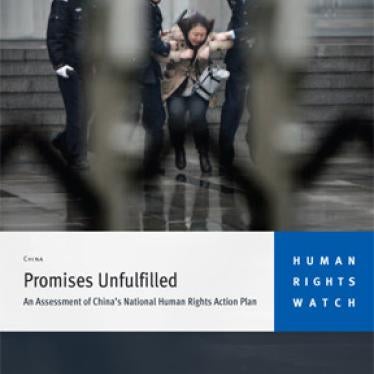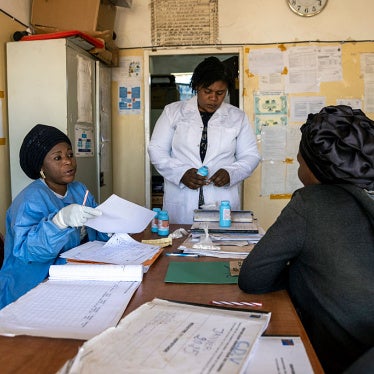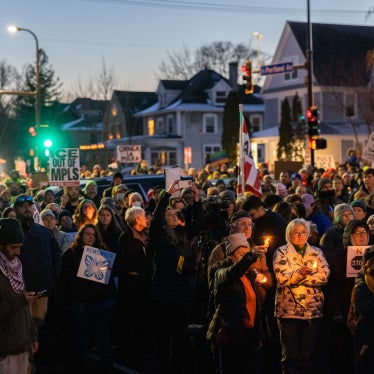In his report on the freedom of expression, the Special Rapporteur makes three separates references to China, regarding the high number of imprisoned journalists (Para. 35), the extensive censorship of internet (Para. 29) and the imposition of intermediary liability for online content (Para. 40).
As a matter of fact, the government of the People's Republic of China has the dubious distinction of being a world leader in Internet censorship.
In addition to an elaborate architecture of technological censorship based on website blocking, content filtering and keyword alerts, it is estimated that the government employs over 40,000 Internet censors, whose role is primarily focused on blocking and removing content critical of the Communist Party and the Chinese government, and identifying the contents' authors. In addition, government agencies under the Ministry of Propaganda employ large numbers of contracted Internet users to flood discussion forums with pro-government propaganda. As noted by the Special Rapporteur, the government also blocks access to popular social media websites such as YouTube, Twitter, Facebook and Flicker.
China is also the origin of cyber-attacks that systematically target domestic and international human rights organizations working on China. In January 2010, Google accused China of orchestrating an attack against its popular email system, Google Mail, and its password technology, prompting the company to revisit its operations in China. All search engines, including Google, Yahoo, Bing and Baidu remain heavily censored.
The government has also turned ad hoc internet news censorship into an integral element of its already-stringent of system media censorship, ordering media outlets, ISPs and web platforms to conduct surveillance of their users, to remove news items as instructed on a daily basis, and to micro-manage news hierarchy systems so as to artificially alter most-popular items. The government increasingly resorts to cutting off the Internet entirely in areas hit by episodes of social unrest, such as Tibet in 2008, Xinjiang in 2009, and most recently parts of Inner Mongolia.
It also filters systematically any individual case of dissidents or government critics arrested or facing trial from micro-blogging sites, as exemplified by the case of the contemporary artist Ai Weiwei, who is being held unlawfully since April 2 and has yet to be allowed to meet with his lawyer.
Mr. Ai joins the ranks of countless Chinese citizens being arrested, detained, disappeared or jailed for exercising their right to freedom of expression. In his Communications report, the Special Rapporteur points to numerous cases, ranging from lawyers (Gao Zhisheng), to human rights activists (Huang Qi), ethnic minority members such as Tibetans and Uighurs, and others. The Chinese government detains a staggering number of people for daring to peacefully express their views. The government routinely asserts that it only imposes restrictions on expression in line with Chinese law, neglecting to mention that such laws are incompatible with international standards. The crime of "incitement to subvert state power for instance," for instance, criminalizes any criticism of the one-party system. The 2010 Nobel Peace Laureate, Liu Xiaobo, was sentenced under this "crime" to 11-year imprisonment at the outcome of a trial that failed to meet minimum standards of fairness.
Mr. President, the situation for freedom of expression in China has taken a turn for the worse. I would like to recall that the High Commissioner herself, in her opening statement to this session of the Human Rights Council has mentioned her concerns about "increased restrictions on freedom of expression" in China.
The government has just carried the largest wave of arrests witnessed in a decade following the popular uprisings in the Middle East. The numbers of convictions for alleged state security crimes increases every year. Limits on Tibetans and Uighurs are ever more stringent. Internet censorship is increasing. Foreign journalists are facing increased restrictions in reporting, with the government spokesperson openly saying that the law would not apply to journalists "trying to make trouble for China."
Human Rights Watch has documented a truly alarming development, namely the government is increasingly using extra-judicial tactics to silence citizens, such as kidnapping, enforced disappearances, torture, physical intimidation, and indefinite extra-judicial house arrest. Liu Xiaobo's wife, Liu Xia, has for instance been imprisoned at her home and denied any form of communication with the outside world, whether in person, by telephone, Internet or written correspondence, since the Nobel Peace Prize ceremony in December 2010.
Mr. President, for many years the world hoped that as China grew richer it would also grow freer. But today, the Chinese government is moving away from international norms. It is urgent for this Council to remind that government of its international obligations. This Council must urge the government of China to implement the recommendations of the Special Rapporteur's landmark report, and it must urge the government to release all individuals disappeared, detained, arrested or imprisoned for the exercise of their right to freedom of expression.
In closing, we ask: how will the Special Rapporteur and the Council urge the Chinese government to amend the definition of the crime of "incitement to subvert state power"? In order to be consistent with international standards, peaceful criticism of the Communist Party of China, official acts, official policy, or persons holding official position, and the political system cannot be criminalized.







